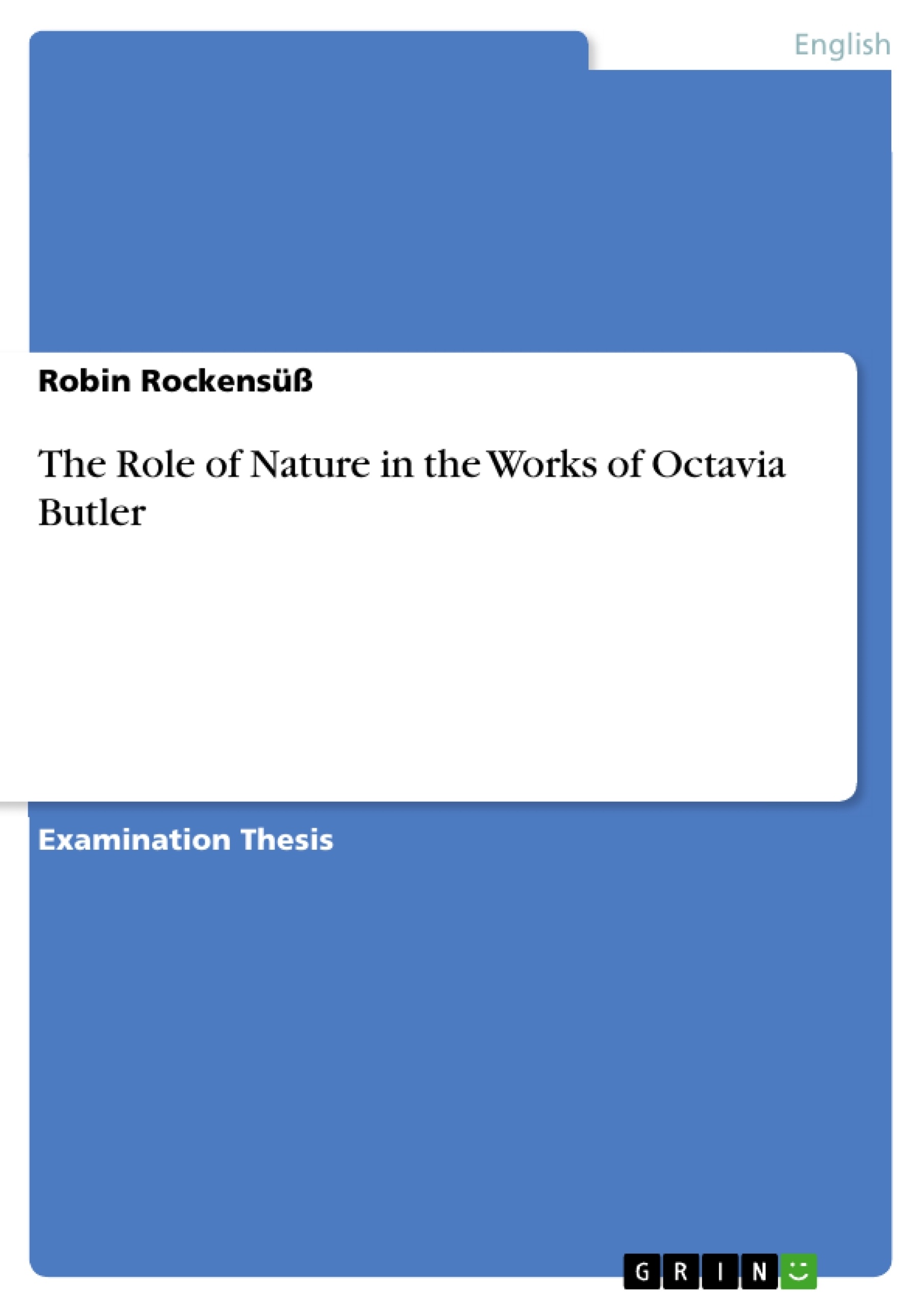The science fiction (SF) writer Octavia Estelle Butler (1947-2006) was a pioneer in many ways. She won several Hugo and Nebula awards and was critically acclaimed as the most successful and most gifted female African-American author in a genre that is still mostly dominated by white males. Butler had been publishing stories since the early 1970s, imaginatively addressing issues such as slavery, race and gender in a science fiction environment – including elements of time traveling as in Kindred (1979) and telepathy and extraterrestrials in the Patternist series (1976-1984), which is made up of five novels and was republished in 2007 as the compilation Seed to Harvest. The Patternist stories already contain references to biological alterations of bodies and somatic mutations.
1987 marks the publication of Dawn, the first volume of the Xenogenesis triology which was also republished after Butler’s death in the compilation Lilith’s Brood. The series advances the idea of biological engineering to modern genetics in the same year when a committee of the National Academy of Sciences stated that organisms altered or created by the combination of genes between species pose no hazards to the natural environment and are “virtually risk free or have risk-to-benefit ratios well within acceptable bounds” (Schmeck 1987). Within the next two years, Dawn was followed by the sequels Adulthood Rites (1988) and Imago (1989). The two novels continued the scenario of a post-apocalyptic civilization and a world controlled by peaceful, yet intrusive extraterrestrial hybrids. In the trilogy Butler considered the overall consequences for nature, humanity and civilization by extrapolating from actual scientific and social developments. This approach can also be detected in the near-future dystopia of the Parable series.
Inhaltsverzeichnis (Table of Contents)
- Introduction
- From Science Fiction Elements to "Nature"
- Environmental Philosophy & "Gaia"
- Speciesism
Zielsetzung und Themenschwerpunkte (Objectives and Key Themes)
This paper examines the portrayal of nature in the science fiction works of Octavia Butler, demonstrating how her narratives engage with environmental discourses. The analysis focuses on how Butler's science fiction uniquely contributes to environmental knowledge and concern, arguing against the genre's often-perceived role as mere escapism.
- Defining science fiction elements and their intersection with environmental themes in Butler's novels.
- Exploring the influence of environmental philosophy, particularly the Gaia hypothesis, on Butler's work.
- Analyzing the ethical dimensions of speciesism and its reflection in Butler's portrayal of human-nature relationships.
- Challenging the marginalization of science fiction as a genre incapable of addressing crucial socio-environmental issues.
- Showcasing Butler's use of science fiction to explore humanity's relationship with the natural world.
Zusammenfassung der Kapitel (Chapter Summaries)
Chapter 1: From Science Fiction Elements to "Nature" This chapter defines the characteristics of science fiction and explores the overlapping themes between science fiction elements present in Butler's novels and environmental discourses. It lays the groundwork for subsequent chapters.
Chapter 2: Environmental Philosophy & "Gaia" This chapter examines the influence of environmental philosophy, particularly the Gaia theory, on Butler's writing. It argues that "Gaian" concepts are reflected in her work, even before she explicitly engaged with the theory. The chapter explores the ethical implications of these concepts for humanity's position as the dominant species.
Chapter 3: Speciesism This chapter delves into the ethical dimension of environmental philosophy through the lens of speciesism. It argues that Butler's science fiction offers tools to expose human concepts of domination over nature and exploitation within the human species.
Schlüsselwörter (Keywords)
Octavia Butler, science fiction, environmental philosophy, Gaia hypothesis, speciesism, nature, humanity, environmental discourse, dystopia, biological engineering, ecocriticism.
Frequently Asked Questions
How does Octavia Butler's work address environmental issues?
Butler uses science fiction elements like biological engineering and post-apocalyptic settings to explore humanity's relationship with nature and environmental ethics.
What is the "Gaia hypothesis" in the context of Butler’s novels?
It refers to the theory that the Earth is a self-regulating complex system, a concept reflected in Butler's portrayal of interconnected biological systems.
What is "speciesism" in Butler’s science fiction?
Speciesism involves the assumption of human superiority over other species, which Butler challenges through her descriptions of human-alien hybrids and biological mutations.
Which of Butler's book series are discussed in this analysis?
The analysis primarily focuses on the Patternist series, the Xenogenesis trilogy (Lilith's Brood), and the Parable series.
Is science fiction merely escapism according to this paper?
No, the paper argues that Butler’s SF contributes significantly to environmental knowledge and addresses crucial socio-environmental issues.
- Quote paper
- Robin Rockensüß (Author), 2008, The Role of Nature in the Works of Octavia Butler, Munich, GRIN Verlag, https://www.grin.com/document/119322



